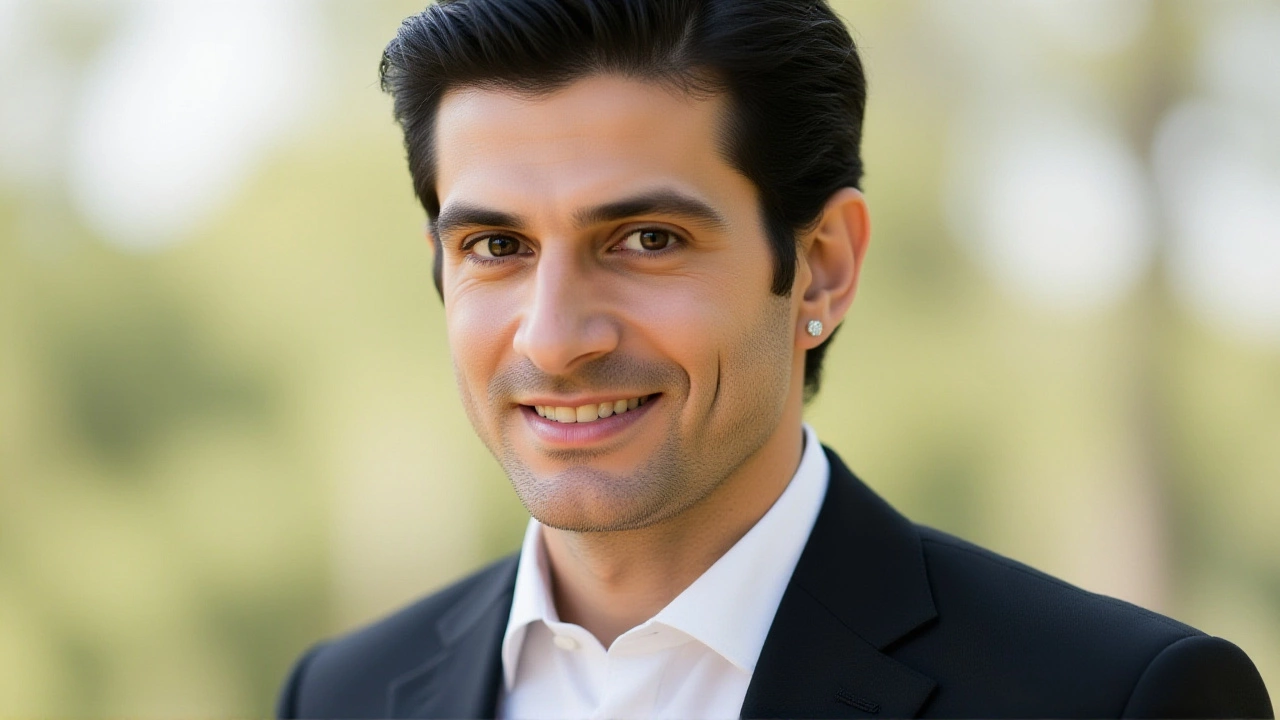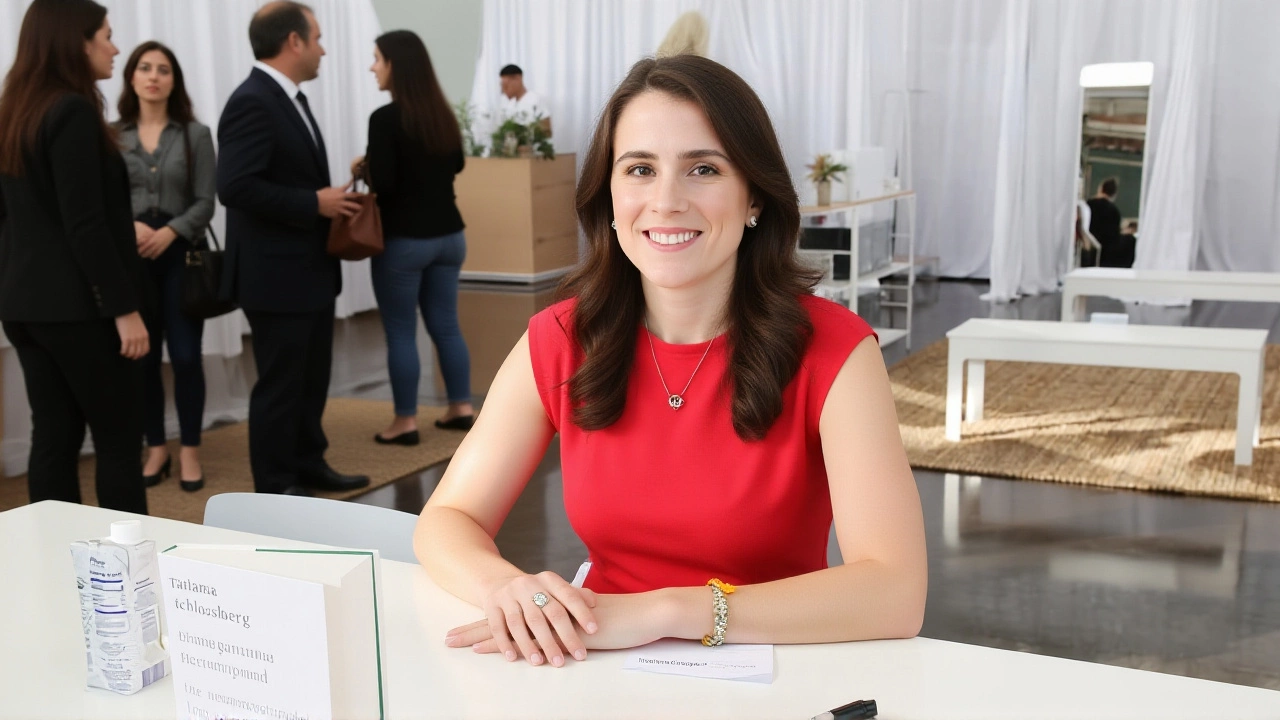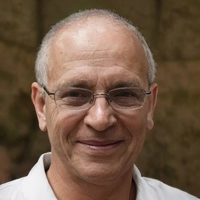
When Tatiana Schlossberg, a 35-year-old environmental journalist and granddaughter of President John F. Kennedy, sat down to write about motherhood, she didn’t plan to write her obituary. But after months of chemotherapy, three bone marrow transplants, and a prognosis that shattered her sense of future, her essay — "A Battle With My Blood," published in The New Yorker on Saturday, November 16, 2024 — became something far more intimate: a love letter to the daughter she may never see grow up.
A Diagnosis Born of Joy
It began with a routine blood test, just days after the birth of her daughter in January 2024 at New York-Presbyterian Hospital in Manhattan. Her white blood cell count: 2,800 per microliter. Normal range? 4,500 to 11,000. "I had swum a mile in the pool the day before, nine months pregnant," Schlossberg wrote. "I wasn’t sick. I didn’t feel sick. I was actually one of the healthiest people I knew." By February, doctors at Memorial Sloan Kettering Cancer Center confirmed the unthinkable: acute myeloid leukemia (AML), with the rare Inversion 3 mutation. Fewer than 1% of AML patients carry this variant, known for its stubborn resistance to treatment and rapid relapse. According to American Society of Hematology data, median survival for these patients is just 12.3 months. Five-year survival? A grim 8.7%.The Grind of Hope
For the next nine months, Schlossberg became a ghost in hospital corridors. She endured six months of inpatient stays across three major medical centers — Memorial Sloan Kettering, New York-Presbyterian, and Massachusetts General Hospital. Four rounds of brutal chemotherapy. Three blood and marrow transplants. The first, in April 2024, came from her sister, Rose Schlossberg, a 36-year-old documentary filmmaker based in Brooklyn. The second and third? From unrelated donors. Each time, remission followed — only to vanish again. She joined two clinical trials at Dana-Farber Cancer Institute in Boston, where her oncologist, Dr. Robert J. Soiffer, Chief of Hematologic Malignancies, delivered the final truth in September 2024: "I can keep you alive for a year, maybe." That’s when Schlossberg stopped fighting to survive — and started fighting to be remembered.A Kennedy Legacy, Reimagined
The Kennedy family has long carried the weight of public tragedy. President Kennedy’s assassination in 1963. Senator Ted Kennedy’s glioblastoma in 2008. A legacy of loss etched into American memory. But Tatiana’s story isn’t about fame. It’s about the quiet, relentless courage of a woman who refused to let her illness define her identity — even as it stole her time. She’s the second of three grandchildren of President Kennedy. Her older sister, Rose, is a filmmaker. Her younger brother, John Bouvier Kennedy Schlossberg, 34, is a U.S. Navy lieutenant commander. Together, they’re the last living generation of JFK’s direct bloodline. And now, Tatiana is writing their family’s next chapter — not in history books, but in ink on a page meant for her daughter to read someday.
What Comes Next?
There are no more clinical trials listed. No experimental drugs on the horizon. Her care has shifted to palliative support at Dana-Farber, where she continues outpatient visits while caring for her infant daughter, born in January 2024. She’s not planning a fundraiser. She’s not launching a nonprofit. She’s writing. Documenting. Trying to explain to a child who doesn’t yet know her name what it meant to be loved — and to be leaving. The essay’s power lies in its quietness. No grand calls to action. No plea for donations. Just raw, unfiltered honesty: "I don’t want her to grow up thinking I was brave. I want her to know I was scared. And I loved her anyway."Why This Matters
AML with Inversion 3 is not a headline-grabbing cancer. It doesn’t have a ribbon color. It doesn’t have celebrity fundraisers. But it kills. Fast. And it kills people like Tatiana — brilliant, vibrant, deeply loved — who never asked for pity, only time. Her story forces us to confront a truth rarely spoken: medicine can extend life, but not always meaning. And sometimes, the bravest thing a person can do is stop fighting the clock — and start writing its final pages with grace.Frequently Asked Questions
What is Inversion 3 leukemia, and why is it so dangerous?
Inversion 3 is a rare genetic mutation found in fewer than 1% of acute myeloid leukemia (AML) cases. It disrupts normal blood cell development, making the cancer highly resistant to standard chemotherapy and prone to rapid relapse. Patients with this mutation have a median survival of just 12.3 months and a five-year survival rate of only 8.7%, according to data from the American Society of Hematology. Even aggressive treatments like stem cell transplants often fail to provide lasting remission.
How did Tatiana Schlossberg’s diagnosis connect to her daughter’s birth?
Her diagnosis came during routine postpartum bloodwork in January 2024, just days after giving birth at New York-Presbyterian Hospital. Her white blood cell count was critically low — 2,800 per microliter — far below the normal range. This abnormality, initially mistaken for postpartum fatigue, led to the discovery of AML. Her pregnancy had masked symptoms, making the diagnosis both unexpected and devastating.
Who are Tatiana Schlossberg’s siblings, and what is their role in her story?
Tatiana has two siblings: her older sister, Rose Schlossberg, a documentary filmmaker who donated bone marrow for her first transplant in April 2024, and her younger brother, John Bouvier Kennedy Schlossberg, a U.S. Navy lieutenant commander. Together, the three are the only living grandchildren of President John F. Kennedy. Rose’s donation was a critical, life-saving act — and one that highlights the emotional toll of familial caregiving during terminal illness.
Why did Tatiana choose to publish this essay in The New Yorker?
The New Yorker is known for long-form, deeply personal journalism that blends narrative with truth. Schlossberg, an environmental journalist herself, understood the platform’s power to reach thoughtful readers without sensationalism. By publishing there, she ensured her story would be treated with dignity — not as celebrity gossip, but as a human reckoning with mortality, motherhood, and legacy.
What is the current medical status of Tatiana Schlossberg?
As of November 16, 2024, when her essay was published, Schlossberg is receiving outpatient palliative care at Dana-Farber Cancer Institute in Boston. She is not pursuing further curative treatments. Her focus is on quality of life, spending time with her infant daughter, and completing her essay — a gift meant for her child to understand her mother’s love, fear, and courage after she’s gone.
How does this story compare to other Kennedy family health struggles?
Unlike Senator Ted Kennedy’s glioblastoma, which was publicly documented and lasted over a year, or Robert F. Kennedy’s assassination, Tatiana’s illness is deeply personal and private — yet she chose to share it. Her decision reflects a generational shift: the Kennedys are no longer just a political dynasty, but a family confronting vulnerability with honesty. Her essay adds a new layer to their legacy — not of power, but of profound humanity.
